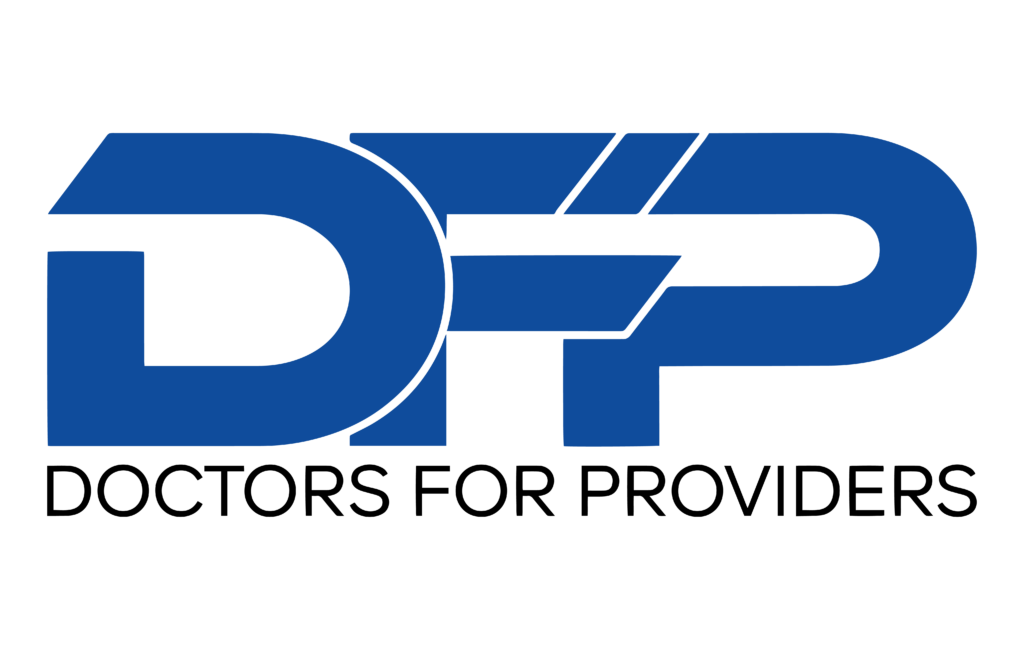Finding the correct collaborating physician is essential for the success of any medical weight loss practice. A strong partnership ensures regulatory compliance, high-quality patient care, and the growth of your practice. Collaborating physician for medical weight loss play a crucial role in expanding services, providing medical oversight, and enhancing the quality of care offered to patients. To help you in this process, we’ve created this comprehensive 20-point checklist that covers all aspects of finding a physician specifically for medical weight loss practices.

Welcome to the most detailed checklist for finding the perfect collaborating physician for your medical weight loss practice. This checklist will guide you step-by-step to ensure that you find a physician who meets compliance standards and aligns with your goals for patient care and practice growth.
Let’s dive in!
Table of Contents
- Identify Your Specific Needs
- Research State Laws and Requirements
- Assess Experience in Medical Weight Loss
- Verify Board Certification and Licensing
- Check DEA Registration
- Evaluate Familiarity with Weight Loss Protocols
- Assess Their Communication Style
- Confirm Availability for Urgent Matters
- Request References from Past Collaborations
- Check Their Knowledge of Telemedicine Regulations
- Understand Their Flexibility with Treatment Approaches
- Discuss Their Willingness for Regular Case Reviews
- Clarify Financial Terms and Expectations
- Assess Their Compliance with Documentation Standards
- Ask About Their Involvement in Research and Continuing Education
- Confirm Their Experience with Advanced Weight Loss Therapies
- Check Their Background in Managing Comorbidities
- Discuss the Process for Reviewing and Approving Protocols
- Inquire About Their Backup Physician Plans
- Set a Timeline for Collaboration Onboarding
The Ultimate 20-Point Checklist
Identify Your Specific Needs for Collaborating Physician for Medical Weight Loss
Clearly outline the services your medical weight loss practice offers. Do you focus on obesity management, dietary planning, or metabolic testing?
Action: List your primary services and ensure your collaborating physician has relevant expertise.
Research State Laws and Requirements
State laws often dictate the extent of a collaborating physician’s involvement in med spa and IV hydration type businesses and may impose ownership requirements or restrictions specific to these services.
Action: Verify legal requirements in your state for medical weight loss practices.
Assess Experience in Medical Weight Loss
Look for a physician with experience managing obesity, metabolism, and related issues.
Action: Review their resume and discuss their previous work in the weight loss field.
Verify Board Certification and Licensing
Ensure the collaborating physician is board-certified in a relevant field, such as family medicine or endocrinology.
Action: Check their board certification and state medical license.
Check DEA Registration
Your collaborating physician should have an active DEA registration if your weight loss practice involves medication-assisted treatments.
Action: Confirm that they have the necessary DEA credentials.
Evaluate Familiarity with Weight Loss Protocols
Your collaborating physician should be well-versed in standard protocols, including prescription weight-loss medications and patient safety measures.
Action: Discuss their approach to standard protocols and treatment plans.
Assess Their Communication Style
Consistent and open communication is critical to effective collaboration.
Action: Discuss preferred communication methods and frequency of check-ins.
Confirm Availability for Urgent Matters
Inquire about their availability in case of emergencies or urgent patient issues.
Action: Ask about their protocol for handling urgent cases and phone or video call availability.
Request References from Past Collaborations
Speak with other providers who have worked with the physician to get insight into their professionalism and collaborative approach.
Action: Contact at least two references provided by the physician.
Check Their Knowledge of Telemedicine Regulations
With the rise of telemedicine, your physician must understand relevant state and federal regulations.
Action: Discuss their familiarity with telemedicine practices and compliance requirements.

Understand Their Flexibility with Treatment Approaches
Medical weight loss is a rapidly evolving field, and your physician should be adaptable to new methods and technologies.
Action: Discuss their willingness to embrace new evidence-based treatments.
Discuss Their Willingness for Regular Case Reviews
Regular case reviews ensure the continuous improvement of patient care and adherence to best practices.
Action: Establish a schedule for case reviews and feedback sessions.
Clarify Financial Terms and Expectations
Be transparent about the fees, bonuses, and contractual obligations involved in the collaboration.
Action: Draft a financial agreement that details all terms.
Assess Their Compliance with Documentation Standards
Proper documentation is essential in medical weight loss practices to avoid legal issues.
Action: Ask about their approach to maintaining detailed records and compliance protocols.
Ask About Their Involvement in Research and Continuing Education
A physician who keeps up with the latest research is an asset to your practice.
Action: Inquire about their participation in continuing education or relevant research projects.
Confirm Their Experience with Advanced Weight Loss Therapies
Discuss their familiarity with emerging therapies like GLP-1 agonists or other advanced interventions.
Action: Get details on their experience with advanced weight loss therapies.
Check Their Background in Managing Comorbidities
Patients seeking weight loss treatment often have other comorbid conditions like diabetes or hypertension.
Action: Verify their experience in managing common comorbidities related to weight loss.
Discuss the Process for Reviewing and Approving Protocols
Your collaborating physician should play an active role in approving and refining treatment protocols.
Action: Set up a review process for any new protocols or changes.
Inquire About Their Backup Physician Plans
Unexpected situations can arise, making it essential to have a backup plan.
Action: Confirm their ability to arrange for a replacement physician if needed.
Set a Timeline for Collaborating Physician for Medical Weight Loss Onboarding
Establish a clear timeline for onboarding and initial training with the collaborating physician.
Action: Create an onboarding checklist and timeline to facilitate a smooth transition.

Breaking It All Down
By following this 20-point checklist, you’ll be equipped to find a collaborating physician who aligns with your medical weight loss practice’s goals and needs. Investing time and effort into this process will pay off through enhanced patient care and sustainable practice growth.
If you have any questions or need further assistance, please get in touch with our team at Doctors For Providers. We’re here to help you find the perfect fit for your practice!
Frequently Asked Questions: Collaborating Physicians for Medical Weight Loss
How do I know if my medical weight loss practice needs a collaborating physician?
Suppose your practice offers medical treatments or interventions that involve prescription medications, diagnostic procedures, or protocols that require physician oversight. In that case, you likely need a collaborating physician to comply with state laws and ensure patient safety.
What are some red flags to look out for when choosing a collaborating physician?
Watch out for physicians who are unresponsive or have a history of disciplinary actions. Additionally, be cautious of physicians who lack verifiable experience in weight loss or related fields or those who do not seem open to regular communication and protocol reviews.
Can a collaborating physician work remotely, and is it legally permissible?
Yes, collaborating physicians can often work remotely, depending on state regulations. Telemedicine arrangements are increasingly common but verifying that your state allows remote oversight of your services is crucial.
How often should I meet with my collaborating physician?
This depends on the scope of your practice and state requirements. For medical weight loss practices, it’s generally advisable to schedule regular meetings or reviews monthly or quarterly, alongside as-needed meetings to address urgent patient issues.
What role should the collaborating physician play in patient care?
The collaborating physician’s role can range from providing oversight and guidance on patient cases to reviewing and approving treatment protocols. Their involvement should align with your practice’s scope and your state’s legal requirements.
Is it necessary to have a formal contract with my collaborating physician?
Yes, a formal contract is essential to define the terms of collaboration, including financial arrangements, responsibilities, and termination conditions. This helps prevent misunderstandings and ensures compliance with state laws.
What qualifications should I prioritize when selecting a collaborating physician?
Prioritize board-certified physicians, have experience in weight loss and metabolic management, and possess excellent communication skills. Verify their credentials and review their professional background to confirm their qualifications.
Can the collaborating physician help with marketing and patient engagement?
While their primary role is clinical oversight, some collaborating physicians may be open to supporting patient engagement and marketing efforts. If this is a priority for you, discussing their willingness and legal limitations during the selection process is essential.
What should I do if my collaborating physician becomes unavailable or unresponsive?
If your collaborating physician becomes unavailable or unresponsive, it’s crucial to have a backup plan in place. Ideally, the physician should have a designated backup or replacement physician for such scenarios. Discuss these contingencies in your contract.
How do I determine the right level of involvement from my collaborating physician?
The level of involvement should align with your practice’s needs and your state’s legal requirements. Some practices require direct supervision, while others only need periodic oversight and case reviews. Establish expectations upfront to avoid confusion.
Are collaborating physicians responsible for training staff members?
This depends on the agreement between you and the physician. Collaborating physicians may offer guidance or training on medical weight loss protocols, especially for newly introduced treatments. Discuss this expectation during the initial meetings.
What resources or tools can collaborating physicians provide to my practice?
Collaborating physicians can offer sample protocols, treatment guidelines, and patient care resources. Additionally, they may contribute by reviewing and updating standard operating procedures to align with best practices and new medical research.
How does the onboarding process for a new collaborating physician work?
The onboarding process should include:
- Formal introductions to your staff.
- A review of your practice’s procedures.
- A clear discussion of communication expectations.
Schedule initial training sessions and case reviews to establish a successful collaboration.
Additional Resources for You
American Association of Nurse Practitioners (AANP)
The AANP is a leading organization that provides educational resources, professional support, and advocacy for nurse practitioners, including information on collaborative practices and state regulations.
Visit the AANP
American Medical Association (AMA)
The AMA offers comprehensive resources on medical ethics, practice management, and state-specific regulations, helping providers stay informed about compliance and collaborative practice guidelines.
Visit the AMA
National Institute of Diabetes and Digestive and Kidney Diseases (NIDDK)
NIDDK provides research-based resources on obesity, metabolic health, and weight loss treatments, making it a valuable source for medical weight loss practices.
Visit NIDDK
Obesity Medicine Association (OMA)
OMA offers specialized education, protocols, and certifications in the field of obesity medicine. Their resources are helpful for practices focused on medical weight loss and managing related comorbidities.
Visit OMA
American Society of Metabolic and Bariatric Surgery (ASMBS)
The ASMBS is a resource for the latest advancements and guidelines in bariatric surgery and metabolic treatments. This organization provides training and research opportunities for weight loss practitioners.
Visit ASMBS
National Institutes of Health (NIH)
The NIH provides access to a wide range of medical research, including studies on weight loss interventions, compliance, and the role of collaborating physicians in healthcare settings.
Visit NIH
Drug Enforcement Administration (DEA) Diversion Control Division
The DEA’s official site offers critical information on DEA registration requirements, compliance guidelines, and regulatory updates for practices prescribing controlled substances.
Visit DEA Diversion Control Division

What’s Next
Suppose you’re a healthcare provider looking for a reliable and experienced Collaborating Physician or Medical Director or a physician interested in joining our network. In that case, we invite you to take the next step in your professional journey. At Doctors For Providers, we specialize in making the perfect match to support your practice growth and patient care. Visit https://doctors4providers.com/registration/ today to register and discover how we can help you build the collaborative partnership you’ve been searching for!

